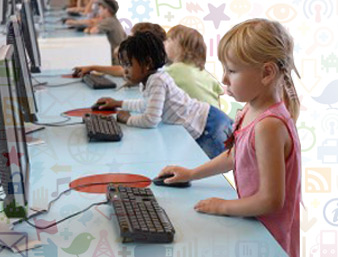

Volume:6, Issue: 1
May. 1, 2014


May. 1, 2014
Dear friends and colleagues, faithful and new readers,
I am so happy to greet you again. This is a very special issue for two reasons: first, it addresses the topic that is extremely important and ‘hot’ today, and second, because it is issue No.15 (!) Frankly, it is hard to believe that exactly five years ago, in May 2009 we started this journal and could not even imagine what the future would bring us. Who could predict that we would gain readers from six continents and 129 countries, or that 77% of our readers would return to our website for almost every new journal issue? Pleasant surprises all over – so many sophisticated authors, wonderful papers, and so many great readers.
This time my task is easy enough – the topic of this journal issue is Media Education, such a famous buzzword that it does not need any further introduction, and the editorial board was lucky to have an invited co-editor Dr. Elena Ermizina who is a specialist in the field and whose recommendations and advice were extremely valuable. Our current authors from Russia and the United States raise important questions and clarify terms and definitions within the sphere of media education. As with any relatively new field, it is involved in debates and discussions on what to consider media education, how to treat the use of media tools in instruction, and how to achieve media literacy in schools, colleges, and at home. We are grateful that our authors have touched upon these and many other related issues. You will certainly find the papers by Tessa Jolls, Svetlana Gudilina, and Elena Bondarenko very informative and introducing clear definitions of popular terms in the field together with primary approaches and possible solutions of difficult situations. We cannot agree more with Tessa Jolls who reminds the readers that “media literacy skills are central to contextualizing, acquiring and applying content knowledge -- it is these skills that are imperative for being an educated and competent citizen in the 21st century.”
Natalia Gendina and Elena Kosolapova do not only analyze primary terms and concepts in the sphere of media education in Russia today but also challenge the potential of media literacy integration into an information culture of elementary school students. There are also two more papers which draw our attention to the issues of instruction but in higher education. Dmitry Klimentyev shares his practical experience of an efficient classroom and online foreign language teaching by introducing available high-tech cloud computing services, such as Google Docs and ooVoo. Lyubov Geykhman and Irina Stavtseva define the concept of the “digital user’s reading competence” and highlight its advantages in training future engineers.
Family media literacy, principles and techniques of dealing with technology at home and many other interesting insights are presented in Gloria DeGaetano’s paper that will become a must-read for both parents and educators.
A different but a very important angle of the problem we find in the paper by Zehlia Babaci-Wilhite based on her research in Tanzania. She puts forward a model of education that involves alternative assumptions about the value of local knowledge and local language in teaching and learning which, in its turn, creates a platform for innovations with a unique mix of local and global knowledge in media education.
Anastasiya Levitskaya in her paper demonstrates how TV reality shows can be used to develop media literacy of the younger generation.
As usual, our loyal writer Mikhail Boguslavsky presents to readers one more brilliant Russian thinker and educator Dmitry Mendeleev and his pedagogy of lifelike realism, it is certainly worth reading as well as the paper by Vladimir Lizinsky. This time he responds to a challenging question of whether modern schools should remain humble and quietly do the job or become aggressive in promoting themselves in the local and wider communities.
Finally, we would love to return to the topic of the previous journal issue – Special Education, and as a response to it we are publishing a paper based on one Russian rural school experience by Ludmilla Baiborodova and Lyubov Pautova. The authors show different ways of teaching children with disabilities in comprehensive rural schools and the particularities of their integration into the community of children without disabilities.
In conclusion, I would love to repeat how much the editorial board appreciates our readers’ comments and questions, and how much we anticipate receiving them.
Thank you for your loyalty to the journal and for being with us for the last five years.
Always yours,
Tatyana Tsyrlina-Spady
Editor-in-Chief
tsyrlina@aol.com

Home | Copyright © 2025, Russian-American Education Forum